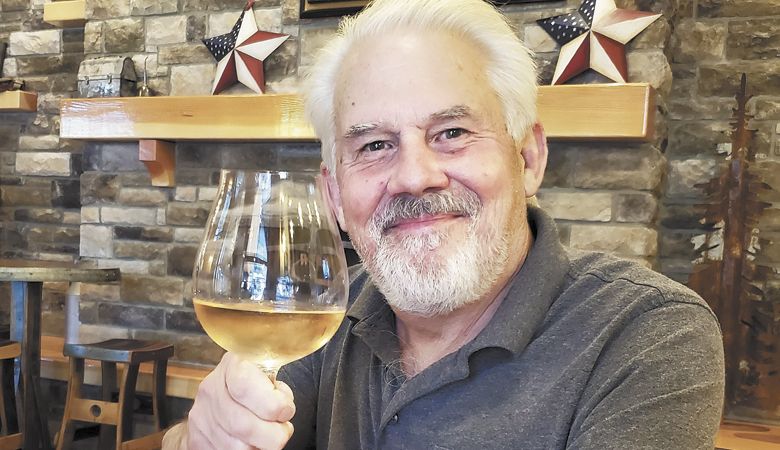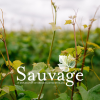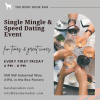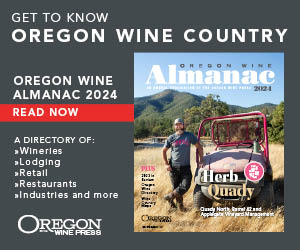Turning the Tables II
Interviewing the Interviewers: Paul Omundson
OWP’s new bi-monthly column, conducted by Carl Giavanti, “turns the tables” on industry wine writers by asking them about their own profession. The Q&As are modeled on the Wine Industry Network Advisor series, also by Giavanti.
Paul Omundson is a freelance wine writer based in Monroe. He previously worked at the San Diego Union-Tribune and Imperial Valley Press and then went to “the dark side” and was a manager and director of public relations and communications at Sharp HealthCare and Scripps Health in San Diego, and Honeywell and Ericsson in L.A., which for a time had a presence in Southern California. Today, he is retired and enjoys a longtime love of writing about wine.
Professional Background
How did you come to wine, and to wine writing?
PO: It came to me. I remember as a kid whenever I got a cold, my mother had an interesting routine of giving me a glass of wine before bed (two glasses tops). So, I got to know what wine was at an early age. Then, as a young man, it didn’t take me long to realize how impressive it was to girlfriends to host wine parties where the featured liquid was NOT jug wine but decent bottles of whites and reds. That was a distinction many of my peers were not able to make quite yet when we were in our early 20s. As far as writing about wine goes, I started my journalism career writing about rock and roll. But soon wine stories seemed to organically pop up in the mix, too.
What are your primary story interests?
PO: Growers and winemakers do a beautiful dance with nature. Chronicling that dance in all its incredible aspects, especially when it becomes so challenging, such as dealing with a pandemic and fire and smoke issues, is the kind of stuff that’s riveting fodder for me.
What are your primary palate preferences?
PO: For some reason, Chardonnay, both oaked and unoaked, is totally embraced by my palate. And here’s a weird thing I do — especially with guests. My palate loves me for this! I’ll serve both versions and chill the bottles almost to the point of slush. And I’ll go back and forth with pours from each of them. It’s an extraordinary sensory experience! The key is to chill your chards to almost freezing, including same with your wine glasses. If you’re really up to a killer palate experience, add some chocolate-covered blueberries. Together, and served in that fashion, it’s a decadent and totally wonderful taste and nibble to do.
Personal Background
What would people be surprised to know about you?
PO: I earned a degree in religious studies at San Diego State University and still indulge in a deep passion for the study of early Christianity.
If you weren’t writing about wine for a living, what would you be doing?
PO: Taking long walks with my wife, Melissa, and reading the poetry of people like Emily Dickinson, Edgar Allen Poe, William Blake and Walt Whitman. Writers like these really stir up our soulful connections to the universe. Wish I had time to absorb their artistry more fully. It seems there’s never enough time to sit down and really linger over and savor magnificent poetry.
How did you come to live and write in Oregon?
PO: I’m totally a San Diego kid, but I’m also an only child. So, when my parents (who had previously moved to Eugene) started failing about 25 years ago, my wife and kids graciously agreed to pull up our roots to move to Eugene, so we could care for them. My parents sure as heck had no one else to help them out. The wine writing seemed to happen by osmosis.
Writing Process
Can you describe your approach to wine writing?
PO: It starts with the interview process. I try to consciously make myself as aware and receptive as possible to catch scope, depth and nuances of what growers and winemakers say when we chat about a particular subject. The idea is to capture each interviewee’s own unique spirit and style and be able to express that in the story at hand. Then, during actual writing, for me, it’s a crucial exercise to be rigorous in self-editing. Got to cut the flotsam and jetsam, vacuuming out the weak, unnecessary words so a story can be as powerful and compelling as possible.
What are you working on now (for your own site, or other outlets/publications)?
PO: I like to focus on key trends and industry issues in overview pieces for the Oregon Wine Press. I’m also pursuing additional writing opportunities with some other publications.
Do you work on an editorial schedule and/or develop story ideas as they come up?
PO: Story ideas simply materialize from ideas gleaned from friends who are winemakers, story assignments from my editor, ideas that pop into my head and occasionally from great story ideas pitched from PR folks.
Working Relationships
What do you recommend to wineries when interacting with journalists?
PO: Be available, on point and timely in response to queries.
What advantages are there in working directly with winery publicists?
PO: PR people are pure gold. We writers don’t have time to sniff out all the story potentials out there. These people really help guide a wine writer to new ideas and story possibilities. But having a good number of actual growers and winemakers in one’s stable of informants doesn’t hurt either.
Which wine reviewers/would you most like to be on a competition panel with?
PO: Michael Alberty, one of Oregon’s most talented and prolific wine writers who provides coverage for the Oregon Wine Press and The Oregonian. But on second thought, this might not work. If we were on a panel together, all we’d do would be to talk about rock and roll. That’s a shared passion. It’s almost as important as the Oregon wine we cover.
Leisure Time
If you take days off, how do you spend them?
PO: It could be because I’m a freelancer, but I don’t consider time and effort pursuing and writing wine stories as “work assignments.” Wine writing is a pleasure and joy, even the most challenging aspects of it. But to the point of the question, days not spent tracking down wine features most likely will be with my wife trekking through the Finely Wildlife Refuge a few miles from our home, or taking nice little day trips to the coast.
What is your most memorable wine or wine tasting experience?
PO: Easy answer. By far, it was the several times I had the pleasure of interviewing renowned Old-World farming guru and winemaker Stephen Hagen at his home and vineyard west of Junction City. Nothing like leisurely sharing his Pinot Noirs that have such a distinctive, original character because of his adherence to pre-1940s agriculture. Then, we topped off our afternoons with his hickory coffee. And strolling with him through a portion of his 21 acres of vineyards was just as memorable. The man is incredibly, vibrantly in tune with the earth. That somewhat obsessive quality allows him to make some of the most adventurous Oregon wines.









